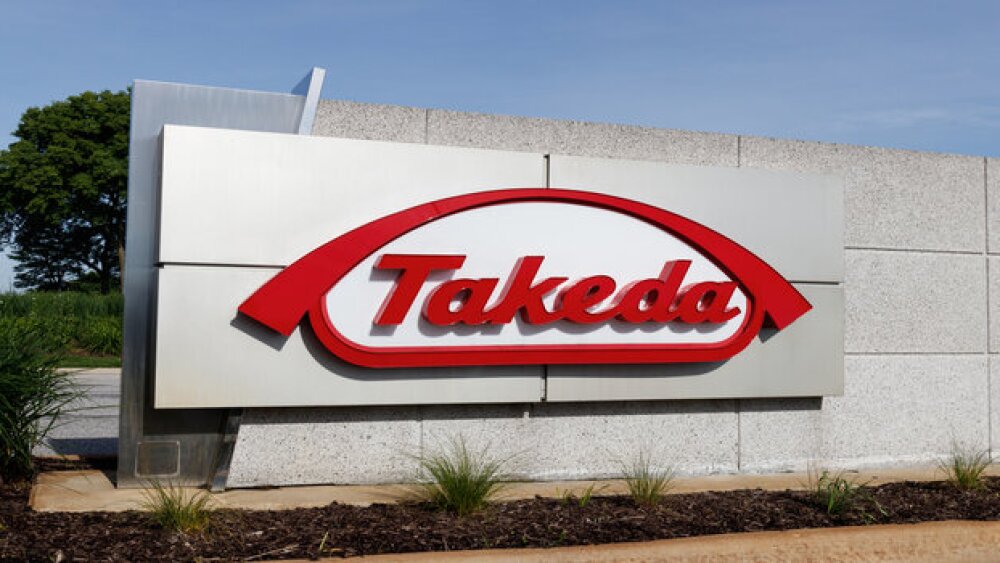CHICAGO, June 3 /PRNewswire/ -- CytImmune, a clinical stage nanomedicine company focused on the development and commercialization of multifunctional, tumor-targeted therapies today presented poster abstract number 3603 from 8 am to 12 noon at the 43rd American Society of Clinical Oncology (ASCO) Annual meeting. The poster, entitled "Preliminary Results of a Phase 1 Clinical Trial of CYT-6091: A PEGylated colloidal gold-TNF nanomedicine," announced the preliminary data of a National Cancer Institute conducted and CytImmune Sciences sponsored Phase 1 trial of CYT-6091 (Aurimune), CytImmune's lead drug compound. The Phase 1 clinical trial was designed to investigate whether: (1) Aurimune will perform identically in humans as it did in preclinical studies and companion animals and (2) the fever side effect observed in preclinical studies can be easily managed and separated from hypotension -- the dose limiting side effect of the active pharmaceutical ingredient.
"This is a tremendous opportunity for CytImmune," said Dr. Lawrence Tamarkin, CEO of CytImmune Sciences. "Presenting preliminary Phase 1 trial results to the leading body of international oncology experts helps pave the way for nanomedicines as the next generation of targeted cancer therapies and their use in improving the biodelivery of potent, but highly toxic therapeutics. We believe CYT-6091 has the potential to become a new, versatile therapeutic which may be used to treat a broad spectrum of solid tumors."
CYT-6091 (Aurimune), CytImmune's lead drug compound, is recombinant human tumor necrosis factor alpha (TNF) bound to the surface of 27 nanometer PEGylated colloidal gold nanoparticles. While TNF's tumor killing properties are well documented, its clinical use has been severely limited due to unacceptable toxicities.
To harness the potential of this anti-cancer agent, CytImmune's approach simultaneously binds PEG-Thiol and TNF to the surface of colloidal gold nanoparticles, whose design is to: (1) make them invisible to immune detection, thereby avoiding uptake by the liver and spleen and (2) target delivery of TNF directly to tumor sites.
At 27 nanometers in size, these nanoparticles are small enough to circulate safely through the body but too large to exit the blood stream except through the newly formed and leaky vasculature at solid tumors. TNF molecules on the surface of these gold nanoparticles act as tumor-targeting agents, binding to receptors at the site of disease and pulling nearly all TNF out of the circulation. By selectively accumulating TNF in and around solid tumors, Aurimune limits the biodistribution of TNF and prevents its uptake by healthy organs and tissues.
Preliminary data from the Phase 1 study indicates that CYT-6091 is seen in tumors, but not in healthy tissue, and that the mechanism of targeting solid tumors is independent of tumor type. To date the drug has had no effect on renal, liver or immune function and no unexpected serious adverse events have been reported. CYT-6091 induces a predictable and controllable febrile
response, and has yet to induce hypotension, the dose limiting toxic effect of TNF.
"The next step is to safely and systemically administer doses of TNF at levels similar to the clinical experience with isolated limb perfusion where efficacy (i.e. tumor regression) has been observed in 85% of patients treated," said Tamarkin. "If successful, such an achievement represents a significant step forward in advancing cancer therapy."
In preclinical studies, CytImmune achieved safe and targeted delivery of TNF at levels necessary for biologic response - in some cases far exceeding established lethal doses for TNF alone.
The Phase 1 clinical trial for CYT-6091 (Aurimune) began in May 2006 at the NCI Center for Cancer Research, Bethesda, MD. To date, 15 patients have participated in the study. Patients included in the study thus far have been late-stage pancreatic, breast, colon, melanoma, sarcoma and lung cancer sufferers. Twelve additional patients will be enrolled in this Phase I study which is due to be completed in December 2007.
Phase 1 preliminary trial data and the ASCO Poster Presentation can be found on the CytImmune website, www.cytimmune.com. All data has been released according to ASCO's Abstract Policy. The American Society of Clinical Oncology Annual Meeting is considered the premier educational and scientific event in the oncology community. In 2006, more than 29,000 attendees from around the world participated in the 42nd ASCO annual meeting in Atlanta, Georgia.
ABOUT CYTIMMUNE
CytImmune Sciences is a clinical stage nanomedicine company focused on the development and commercialization of multifunctional, tumor-targeted therapies harnessing the unique properties of gold nanoparticles, known anti-cancer agents and biology of tumors. The platform technology allows for the targeted delivery of anti-caner therapies while avoiding update by healthy organs and tissues leading to improved efficacy, safety and patient outcomes. CytImmune hopes to build from this common core technology a family of therapeutics with faster development timelines, efficient regulatory approvals, new commercialization value, and greater patient benefits.
CytImmune SciencesCONTACT: Alicia Moran, +1-703-739-2424 Ext. 110, +1-410-991-7027 (cell),alicia@brightlinemedia.com, for CytImmune
Web site: http://www.cytimmune.com//




